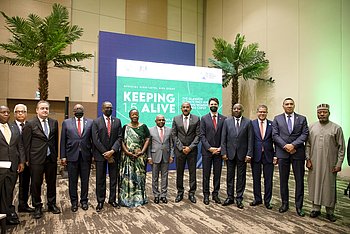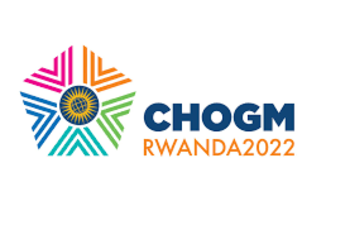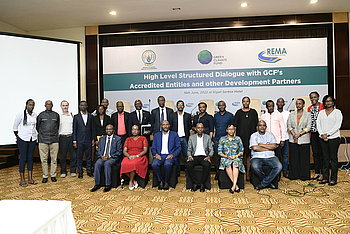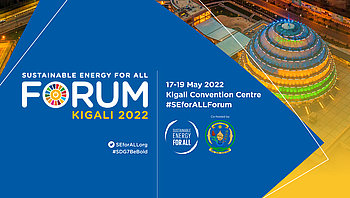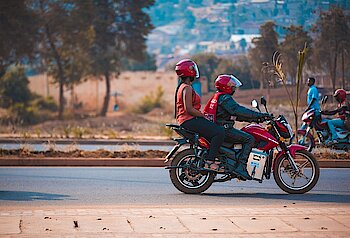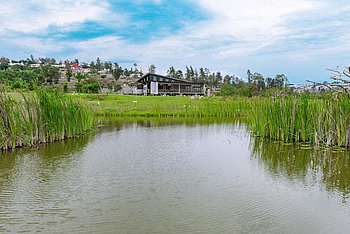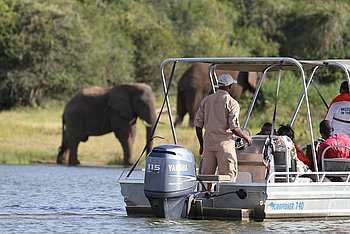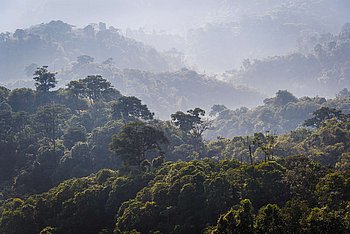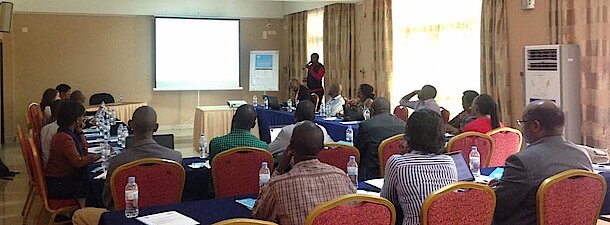
Rwanda NDCs Detailed Implementation Plan disseminated
Nowadays, climate change has become significant and emerging global challenge that the World is facing. Addressing the risks of climate change requires significant efforts by both the developed and the developing world. Unlike in the past years when Non Annex-I Parties (developing countries) to the United Nations Framework Convention on Climate Change (UNFCCC) had no obligations or commitments to reduce GHG emissions ; from Durban platform, developing countries were urged to join the global efforts to reduce GHG emissions.
The decision of the 19th session of the Conference of the Parties (COP 19) the UNFCCC held in Warsaw, Poland in 2013 invited all Parties to prepare and submit their Intended Nationally Determined Contributions (INDCs) to the UNFCCC secretariat before COP 21 held in Paris, France in December 2015.
With ratification of Paris Agreement (PA), the Intended Nationally Determined Contributions (INDCs) are no longer “Intended”, they have become Nationally Determined Contributions (NDCs) as Countries were recalled to look forward to the implementation of climate actions put forward in their NDCs.
In this line of joining global effort to combat climate change, following the ratification of Paris Agreement on 06th October 2016, Rwanda has developed a detailed implementation of Rwanda NDCs to translate committed adaptation and mitigation contributions into implementable measures. The detailed implementation plan of Rwanda NDCs was developed from May to June 2017 through a sector based consultative process. It maps stakeholders that are relevant to varying degrees for implementation.
The key sectors involved in NDCs implementation include Energy, Agriculture, Transport, Industry, Waste, and Forestry, Water use, Land use and Tourism.
Where possible the implementation estimates the costs and sustainable development co-benefits of the actions as well as Measurement, Reporting and Verification (MRV) of results and suggests timelines for their implementation. The plan also outlines capacity needs that must be addressed as well as barriers and risks that the different actions are facing in their implementation and provide recommendations and suggests next steps for a successful implementation
On 26th October 2017, at Lemigo Hotel in Kigali, Rwanda Environment Management Authority (REMA) has organized a dissemination workshop of the report on the detailed implementation plan NDCs to allow its smooth implementation.
To open the workshop, Mrs Coletha U. Ruhamya, Director General of REMA invited all sectors to refer to this implantation plan when implementing the actions related to their specific sectors. This implementation plan will help sectors to monitor how they are achieving the adaptation and mitigation contributions committed in Rwanda NDCs.
Topics
More posts
COMMONWEALTH LEADERS MEET IN KIGALI TO DISCUSS WAYS OF KEEPING THE 1.5-DEGREE GOAL ALIVE
The Governments of Rwanda and the United Kingdom together with the Presidency of the United Nations Climate Change Conference (COP26) have on 23rd Jun…
Climate change as key issue that are of special in the CHOGM – 2022 discussion
The effects of climate change are being felt throughout the Commonwealth, with some Member States experiencing climate change impacts, which is a…
Public and Private sectors, Green Climate Fund accredited entities and development partners joined in the structured dialogue
On 16 June 2022 at Kigali Serena Hotel, the public, private sectors, Green Climate Fund (GCF) accredited entities and development partners have joined…
REMA AND HIGHER LEARNING INSTITUTIONS AGREED TO ENHANCE PARTNERSHIP IN ENVIRONMENT AND CLIMATE CHANGE RESEARCH
As part of the “World Environment Day Celebrations”, Rwanda is holding its annual National Environment Week. The week begun on Saturday 28 May by the…
Global Leaders Convening Tomorrow at the SEFORALL Forum in Kigali for Landmark Event on Energy and Climate
At a time when far greater action is needed to fight climate change and to reduce global inequalities, the 2022 SEforALL Forum will commence tomorrow,…
Six ways Rwanda is building climate resilient transport systems
Over the last decade, Rwanda has invested in building efficient and resilient transport systems. Guided by the country’s Green Growth and Climate…
Six ways Rwanda is being water wise in the face of climate change
Access to water underpins public health and is critical to sustainable development. Availability of water is also critical for any country’s…
Five ways Rwanda is investing in ecotourism and conservation
Rwanda is located in the Albertine Rift, a region considered especially rich in biodiversity, making it ideal for conservation and ecotourism. From…
How Rwanda is putting its forests first in the fight against climate change
In 2011, Rwanda introduced a Green Growth and Climate Resilience Strategy to guide the country to become a developed, low carbon economy by 2050.…
